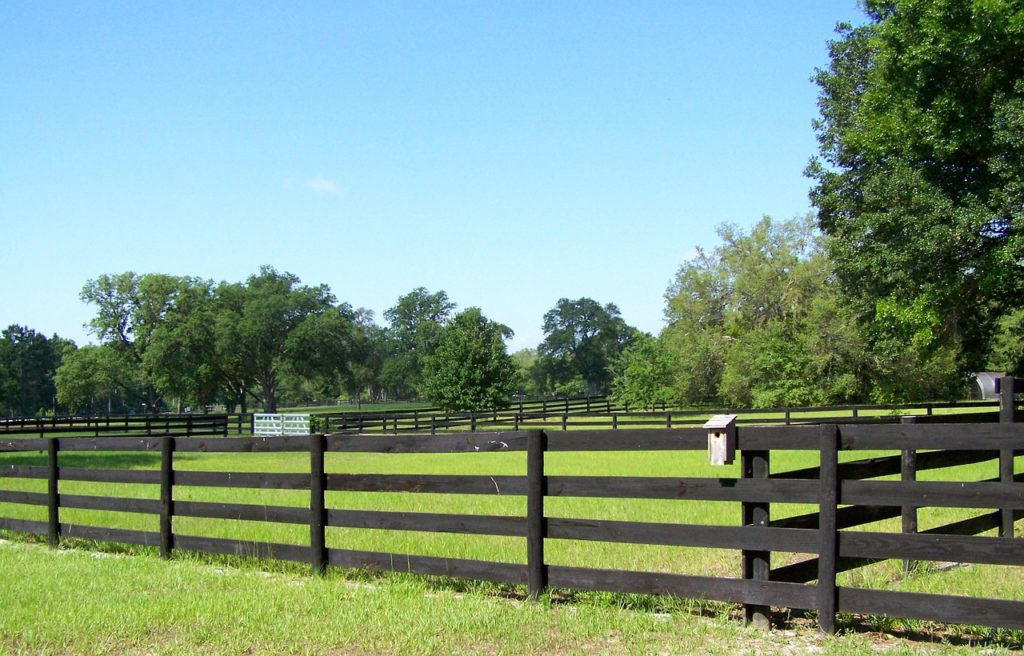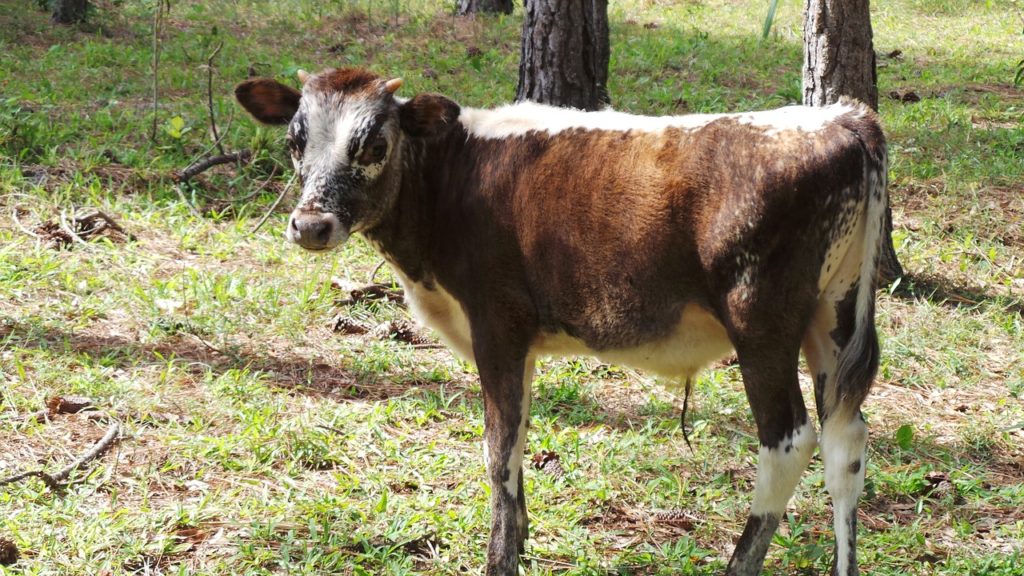How to start homesteading in Florida
Farming in Florida is a unique, tropical experience compared to other places in the country. Agriculture is the second largest industry in the Sunshine State, but the prevalence of large, established corporate farms booming industry makes it difficult for small farmers and homesteaders to break in, with high land prices and a dearth of community networks to help small farmers get started.
Still, Florida is one of the most productive and diverse areas to grow crops in the country, and livestock is a booming industry in the state. If you are interested in laying down roots in the southernmost part of the continental United States, here’s what you need to know about how to start homesteading in Florida.

Buying farmland in Florida
Florida’s farmland is the most expensive in the Southeast. According to 2019 data from the United States Department of Agriculture (USDA), the average cost of farm real estate in Florida was $5,950 per acre, compared to the national average of $3,160 that same year. The average cost per acre for cropland was $7,190 and $5,360 for pasture.
In 2017, Florida had 47,000 commercial farms and ranches, using a total of 9.45 million acres according to the Florida Agricultural Statistics Service. The average farm size was 201 acres. Florida ranks 18th among all states in number of farms and 29th in land in farms.
Working farms need to register with the Florida Department of State, the IRS and the Florida Department of Revenue. Depending on the farm, they may also need to apply for a business license from the Department of Agriculture and Consumer Services or the Department of Citrus. Alligator farms and processors and game farms need to receive a permit from the Florida Fish and Wildlife Conservation Commission.
Working farms should check with the Department of Environmental Protection for applicable air, water and waste permits.
Growing crops in Florida
The USDA Hardiness zones in Florida range from 8a to 11b. The mainland Florida is divided into USDA zones 8 through 10, while the Florida Keys reside in zone 11. Florida is one of the only states that can maintain both tropical and subtropical plants.
Oranges are Florida’s most important agricultural product, generating about $9 billion and nearly 76,000 jobs in the state. Florida is also ranked first in the country in value of production of cucumbers, grapefruit, squash, sugarcane, fresh market snap beans and fresh market tomatoes. The state ranked second in value of production of bell peppers, strawberries, watermelons, fresh market cabbage and fresh market sweet corn. Florida is also ranked fourth nationally in the value of production of peanuts.
Spring crops that grow well in Florida include sweet corn, cucumber, tomato, watermelon and several kinds of beans. Sweet potatoes, southern peas, cherry tomatoes and okra all grow well in Florida’s heat. There are also some lesser-known tropical vegetables you can try, like cassava or Malabar spinach. Some spring crops like peppers and eggplant may continue into the summer. Cool-season vegetables to plant in the fall include broccoli, lettuce, carrots, Brussels sprouts and radishes.
Heat-tolerant varieties of popular crops will thrive best in Florida’s hot and humid summer months. For example, southern pea varieties like California Blackeye No. 5, Texas Cream, and Purple Hull; watermelon varieties like Jubilee, Crimson Sweet, Mickey Lee and Sugar baby; sweet peppers like Mariachi, Sweet Banana, and Cubanelle; and hot peppers like Cherry Bomb, Long Cayenne, Jalapeno, Habanero and Hungarian Hot Wax all grow well in Florida.
Florida’s soil is dominated by sand, though, which is not well-suited to gardening. Florida’s state soil is a gray, fine soil is called Myakka, which is only found in Florida and covers the majority of the state — more than 1½ million acres. The soils of North and Central Florida are typically very sandy, while in the panhandle, the soil can contain substantial amounts of clay. Clay soils compact more easily and drain slower than sandy soils, but still require significant amendments. In southern Florida, though, soils tend to be peat-based and extremely fertile, though some soils in the southernmost parts of the state are shallow and acidic.
Raising animals in Florida
Florida’s livestock industry is a significant part of the state’s economy, contributing over $1.5 billion annually. Beef cattle and milk are Florida’s leading livestock products. Poultry and egg production is important along with thoroughbred horses.

The Florida Department of Agriculture and Consumer Services regulates the entry of many livestock and poultry breeds and most exotic species into Florida and into shows and exhibitions in the state. Most animals require an Official Certificate of Veterinary Inspection (CVI), and there are additional requirements for specific livestock. For example, goats imported into Florida must be tested for the neurodegenerative disease scrapie, and a negative tuberculosis test within 30 days is required for all dairy cattle over 6 months of age unless they originate from an Accredited Free herd in an Accredited Free state.
According to Florida Fence Law, every owner of livestock who intentionally, willfully, carelessly, or negligently suffers or permits such livestock to run at large on public land, roads or private land without the landowner’s permission is liable for all injury and property damage sustained by any person.
It shall be the duty of the sheriff or her or his deputies or designees, or any other law enforcement officer of the county, the county animal control center or state highway patrol officers, where livestock is found to be running at large or straying, to take up and impound any such livestock.
Several livestock auctions take place throughout the state, including the Cattlemen’s Livestock Auction Market in Lakeland, the North Florida Livestock Market in Ellisville and Okeechobee Livestock Market in Okeechobee.
Selling food in Florida
There are over 200 farmers markets in Florida. Each retail farmers market in Florida is independent and establishes its own vendor rules and regulations. The Florida Department of Agriculture and Consumer Services (FDACS) maintains a list of community farmers markets throughout Florida, but community farmers markets are not required to register with the department.
FDACS operates a system of 12 state farmers markets. These markets offer attendant services such as produce refrigeration, truck weigh scales, packinghouses, coolers, offices, farm supply, restaurants and produce brokerage sales as well as produce and freight shipping companies.
FDACS is the regulatory authority for selling produce in the Florida. If you are selling only fresh fruits and vegetables at a farmers’ market, you do not need a license or permit from FDACS.
However, county or city permits may be required.
Cottage food operations require no license or permit from the Florida Department of Agriculture and Consumer Services and are not inspected by any state government entity. Florida law allows individuals to use their unlicensed home kitchens to produce for sale certain foods that present a low risk of foodborne illness. Cottage food operators can produce and sell these products directly to consumers without obtaining a food permit from FDACS as long as gross sales do not exceed $50,000 annually.
Approved cottage food products in Florida include breads, pastries, candies, honey, jams, fruit pies, dried fruits, dry herbs, seasonings, trail mix, granola, nuts, vinegar and popcorn.
Cottage food operators can sell cottage foods only within the state of Florida. They are prohibited from selling across state lines. Operators may sell cottage food products on their website, but the products are prohibited to be delivered by mail order. Products must be delivered directly to the consumer or to the consumer’s private event, and cannot be sold wholesale. Cottage food operators can serve free samples for tasting, but the samples must be prepackaged.
Cottage food products must be prepackaged with a label affixed that contains the following information (printed in English): the name and address of the cottage food operation; the name of the product; the ingredients in descending order of predominance by weight; the net weight or net volume; allergen information as specified by federal labeling requirements; if any nutritional claim is made, appropriate nutritional information as specified by federal labeling requirement. The following statement printed in at least 10-point type in a color that provides a clear contrast to the background label: “Made in a cottage food operation that is not subject to Florida’s food safety regulations.”
County, city, and local governments can enact laws restricting a cottage food operation in your home. A cottage food operation must comply with all applicable county and municipal laws and ordinances.
In Florida, a Limited Poultry and Egg Farm Operation is defined as a farm-based food establishment which directly produces and offers dressed poultry or whole shell eggs for sale. No additional processing or food preparation of such poultry or shell eggs is allowed under this permit category. These small farm operations are limited to up to 1,000 laying hens annually for production and sale of shell eggs and/or up to 20,000 birds annually for the production and sale of dressed poultry.
An FDACS food permit is required for Limited Poultry and Egg Farm Operation, which covers products from chicken, turkey, duck, goose, guinea fowl or quail. Before obtaining a Limited Poultry and Egg Farm Operation Permit you should verify that you comply with all applicable county and municipal laws and ordinances regulating the preparation, processing, storage and sale of poultry and egg products.
An egg and poultry product processing facility must have equipment to properly wash and air dry eggs, including an egg washing machine or a three-compartment sink of sufficient size. The processor must also use a USDA approved shell egg cleaner and sanitizer and have the appropriate sanitizer test kit.
Egg and poultry products can be sold at a roadside stand, farmers market, and other similar open-air market locations or by direct delivery to the purchaser. Internet sales are not permitted. The products can be sold directly to hotels, restaurants and similar institutions for the preparation of meals sold directly to the customer, but not for retail sale.
Eggs shall be sold in flats or in bulk with a placard displayed at the point of sale stating: “These eggs have not been graded as to quality and weight”. The placard must be at least 7 inches by 7 inches in size. Eggs shall be maintained at 45 degrees Fahrenheit or less ambient air temperature.
Living off-grid in Florida
In Florida’s Lake County, small-scale, site-specific or off-grid electrical generation systems serving single users or less than four homes and that use alternative energy sources are permitted and allowed in new developments or redevelopments, though such systems will be encouraged to connect to an available electrical energy distribution system to sell excess power. All developments visible from a public roadway shall be reviewed by local authorities and required to provide landscaping and buffering to minimize visual and noise impacts.
Florida organizations for new farmers
- Florida Farm Bureau
- Sustainable North Florida
- Florida Black Farmers and Agriculturalists Association
- Florida Fruit and Vegetable Association
- Florida Organic Growers
- UF/IFAS Extension (especially the Small Farms and Alternative Enterprises program)
How difficult is it to start homesteading in Florida?
Though the agriculture industry in Florida is robust, farming and homesteading in Florida is more expensive than other states in the region and there are fewer local resources to support new farmers. However, the Sunshine State does provide unique opportunities for growing certain tropical crops and warm weather crops.
